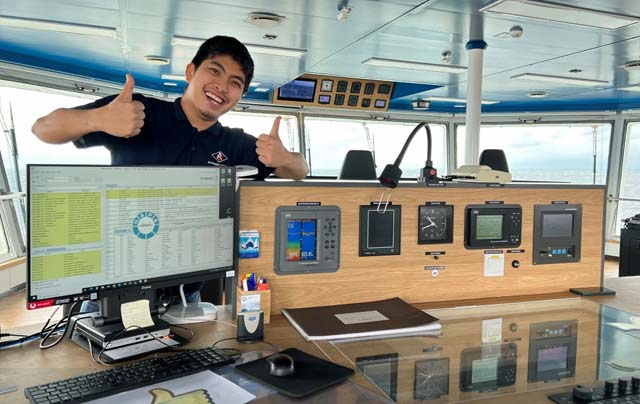Maritime software and data services provider Napa has entered an agreement with gas shipping company Anthony Veder to install the next-generation electronic reporting and data integration system Napa Logbook across its fleet.
By enhancing digitalisation on board, the partnership expects to streamline reporting while opening new opportunities to optimise operations for greater safety and sustainability.
Under the agreement, Napa Logbook was rolled out across Anthony Veder’s fleet of LNG and gas carriers, now serving as the company’s logbook tool. This shift from manual to electronic logbooks facilitates onboard record-keeping, significantly reducing crew workloads while streamlining voyage reporting and regulatory compliance. Moreover, voyage reports, such as noon and bunkering reports, as well as notices of readiness, departure, and arrivals, are now fully automated. This eliminates duplication and facilitates communication between all stakeholders, including shipowners, charterers, cargo owners, and port and terminal operators.
In the longer term, the aim is to leverage data from voyage reports and electronic logbooks to enhance the efficiency, safety and sustainability of operations across Anthony Veder’s fleet. Napa Logbook will streamline data collection and integration, and facilitate seamless sharing between crews onboard and shoreside teams. This will enable real-time analysis, empowering onshore and onboard teams to make better-informed decisions for every voyage. Furthermore, the data will help managers to identify trends and use those insights to unlock new efficiencies for tanker operations and improve safety practices on board.
Anthony Veder is one of the first companies in the merchant shipping segment to deploy the Napa Logbook, which is already in use by more than 40 companies in the passenger ship sector. This reflects growing industry demand across shipping segments for efficient data collection and analysis solutions that can provide new insights on fleets and streamline reporting.
Mark Luchs, Digital Development Manager Anthony Veder, said: “Digitalisation is critical to reduce the administrative work of my seafaring colleagues, and creates insights that allow us to further optimize our operations. Intelligence gained from onboard data and information, for example, plays a pivotal role in the industry’s sustainability journey. At Anthony Veder, we are passionate to facilitate digital change in a way that benefits everyone, both on board and shore-side. The power of digitisation to reduce the administrative workload lies in revealing areas where duplication and errors can be reduced, and greater operational efficiency can be attained; Napa Logbook enables us to obtain new insights while reducing workloads and ensuring a smooth transition for our people. This is a win-win situation. We believe that through comprehensive data analysis, we can make informed decisions on how to create new efficiencies, enhance safety and make our operations more sustainable. This is critical not only to optimize our daily operations and ensure compliance with changing regulations, but also to thrive commercially and achieve our ambition to be a leader in Gas Shipping Services Solutions.”
Tommi Vihavainen, Director of Development, Safety Solutions, Napa, said: “The importance of electronic logbooks has never been more apparent, especially given the fast-evolving landscape of reporting requirements and the industry’s transition towards sustainable shipping. Digitalisation is key to reducing unnecessary crew workload and optimizing processes onboard. However, the benefits don’t end with data collection and reporting. Operational data collected in logbooks is shipping’s secret weapon, helping benchmark and improve a wide range of parameters in the long run. This goes beyond fuel savings, expanding to new areas, including waste and water management, engine efficiency, deadweight management, bunkering, sanitation, equipment safety and maintenance, and much more. We’re proud to partner with Anthony Veder in harnessing their data to achieve their goals and lead the way on operational efficiency and sustainability.”



